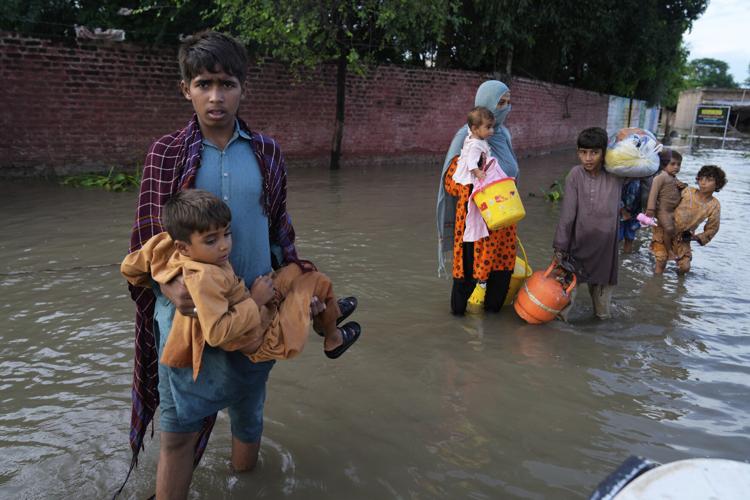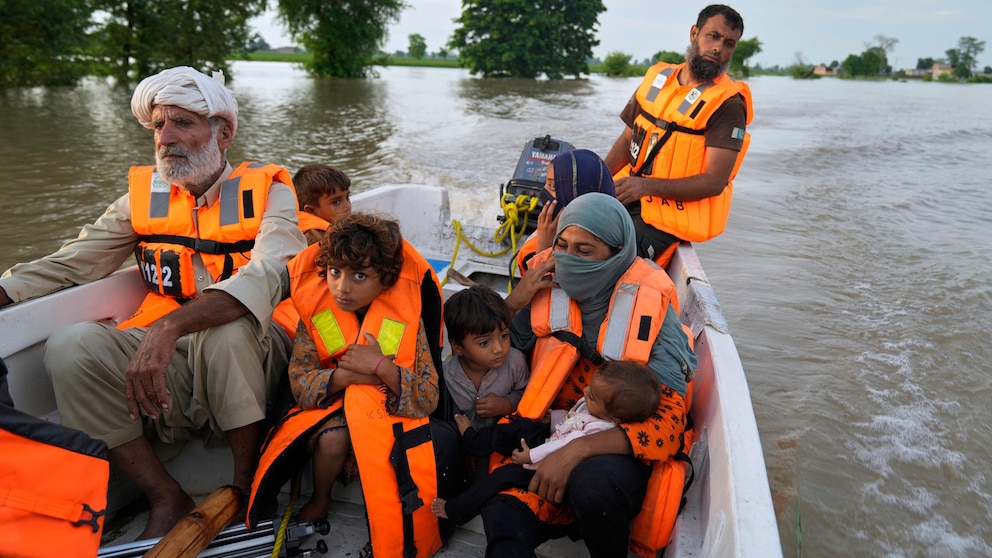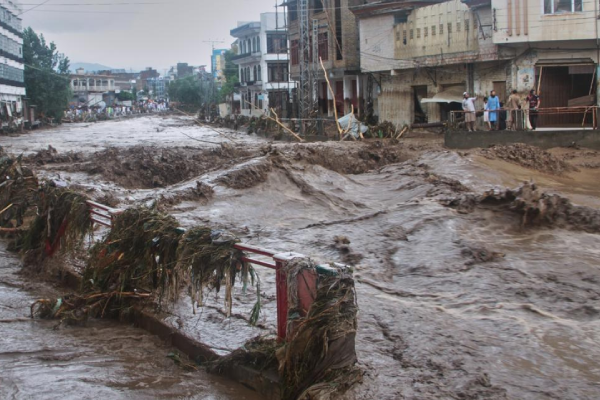Intense rains have lashed parts of Pakistan and India, causing flash floods in Indian-controlled Kashmir’s Jammu region, killing at least 32 people and leaving many others missing after a landslide on a Hindu pilgrimage route, according to local media.
The time frame for the flooding deaths was not immediately apparent.
Authorities in Pakistan’s eastern Punjab province requested army assistance in rescue and relief efforts on Wednesday after torrential rains caused major rivers to swell, flooding villages and displacing over 150,000 people, officials said.

Over 20,000 people were evacuated overnight from the outskirts of Lahore, Pakistan’s second-largest city, which was also at risk of flooding.
According to Irfan Ali Kathia, director-general of the Punjab Disaster Management Authority, the evacuations began earlier this week in six districts of Punjab due to heavy monsoon rains and the release of water from overflowing rivers.

Forecasters predicted rain will continue across the region this week.
Heavy downpours and flash floods in the Himalayan region have killed nearly 100 people in August.
Read Also
Prime Minister Shehbaz Sharif on Wednesday praised authorities for the timely evacuations to avoid losses and said relief supplies and tents are being provided to flood-effected people, according to a government statement.
Kathia warned floodwaters in the Ravi, Chenab and Sutlej rivers were rising dangerously and many villages were inundated in Kasur, Okara, Bahawalnagar, Bahawalpur, Vehari and Sialkot districts.

India notified Pakistan about anticipated cross-border floods using diplomatic channels rather than the Indus Waters Commission, which is the permanent institution established under the 1960 World Bank-brokered Indus Waters Treaty.
New Delhi suspended the commission’s work following the April massacre of 26 tourists in Indian-controlled Kashmir, but Islamabad maintains that India cannot unilaterally terminate the treaty.
The latest flood warning comes as rescuers with sniffer dogs seek for more than 150 individuals who have gone missing this month as a result of cloudburst floods that killed over 300 people in three villages in northern Buner District.
Floods have killed over 800 people in Pakistan since late June.
Climate warming, according to scientists, is generating higher monsoon rains in South Asia, increasing concerns of a repeat of the 2022 weather calamity, which affected a third of Pakistan and killed 1,739 people.
Ahmed reported from Islamabad, while Saaliq reported from New Delhi. Babar Dogar, an Associated Press writer, contributed to this article from Lahore, Pakistan.





